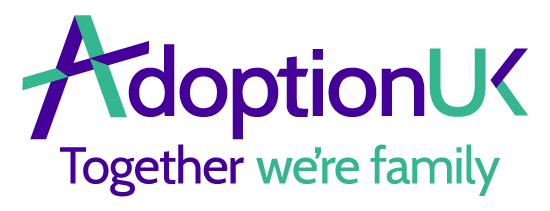Edited 17/02/2021
Dr Sue Armstrong Brown to appear on BBC's The One Show 10/04/2018
Campaigns Assistant
April 10, 2018 17:10
Adoption UK's chief executive, Dr Sue Armstrong Brown, will appear on the BBC's The One Show tonight (10/04/2018) at 7pm on BBC1.She will be discussing adopting children with disabilities.Please tune in and notify other adopters and your social circles.Thanks, Adoption UK
Donatella
April 11, 2018 10:46
I have a question following on from last night. Sue touched briefly on lots of issues not being visible at placement and in that event adopters need to ensure thereâs a robust support plan in place. Could you please enlighten me? Wording of Support plan? What needs to be included? What needs to be excluded? How not to make it ambivalent? How to word it so that placing authority accepts future responsibility or that it makes it clear what will happen in the future should any additional needs arise? I adopted three babies - those no issues, meeting milestones blah blah blah babies. In reality, given their histories, issues could/should have been anticipated but, hey, babies donât have issues do they? Roll forward some years when issues did become apparent and placing authorities not interested - their support plans pretty much said nothing to do with us - go to relevant professional. Which, as we all know, is easier said than done. And please donât say ASF or PPP. They only exist in England. So, a serious question- what should a good support plan look like and how do you make it future proof?
Edited 17/02/2021
Pear Tree
April 11, 2018 14:59
âAnd please donât say ASF or PPP. They only exist in Englandâ Further, thereâs quite a few exceptions to ASF and PPP too even in England. Itâs a total lottery.
Edited 17/02/2021
Online Team
April 11, 2018 16:33
From our Chief Exec: A good, future-proof, unambiguous support plan is indeed something weâd like all adopters to have. Youâre right that currently weâre a long way from this being the norm, especially with children who donât present with diagnosable issues at the point of matching â and youâre also right that often, given their histories, some of them could be anticipated. In England and Wales, under the Adoption and Children Act 2002, adopters have the right to an assessment of adoption support needs. The law is fairly specific about what should be included, including health and education considerations, and that the plan should be kept under review. If youâre interested in a bit of legal geekiness, take a look here: http://www.legislation.gov.uk/ukpga/2002/38/section/4?view=extent, and for Wales here: www.legislation.gov.uk/wsi/2005/1512/contents/made . Scotland have their own provisions under the Adoption and Children (Scotland) Act 2007 here: http://www.legislation.gov.uk/ssi/2009/152/contents/made. Of course we all know that this isnât carried out to the letter of the law everywhere, and thereâs a huge postcode lottery for access to support and resources. Securing improvements in assessments and support is a lobbying priority for Adoption UK in all four countries of the UK, and weâre working on ways to help adopters access what is available now and argue for what they need. But a good starting point would be for all adopters to know that they are entitled to an assessment. Sue
Edited 17/02/2021
Donatella
April 11, 2018 17:41
Thank you for responding. We have been fortunate - on the two occasions, so far, that weâve needed therapy our LA has stumped up without any argument. Despite no ASF! However the âsupport plansâ werenât worth the paper they were written on and as a naive adopter I had no idea what I shocked be asking for. By the time our 3rd child arrived, my other two were only 5 and 2 so middlyâs difficulties were not apparent. Maybe those Support plans need to be written with the longer term in mind and in collaboration with the adoptive parents. I know ours werenât. Maybe they are now?
Edited 17/02/2021
pingu123
April 11, 2018 21:37
I am off the opinion that a better clarity is needed, as to who is responsible for providing support (as in paying for treatment, therapy, etc) when adopted children (and maybe fostered and kinship) need such support. At the moment, as folks say, it is a lottery, and lots of tossing responsibility for payment around like a hot potato that no agency wants. Maybe funding could be built into the system as an insurance type payment that is part of the money tossed from LA/VA to LA/VA when a child is first adopted.
Edited 17/02/2021
Larsti
April 12, 2018 08:09
That is a very good point Pingu. In our case we ended up self funding an assessment at the Maudsley (and were fortunate we could afford to do so) after clinical commissioning group refused (twice) and then SW who was assessing for ASF was very obstructive. Didn't think we would get funding for it as 'health have said he doesn't need it'. Tried to see what they could offer us in house. We said can't you just apply to ASF 'Well my manager has to sign off the application'. It was so frustrating we called a halt to the assessment and just paid for it ourselves. That assessment has been by far the best thing we have done for our son (apart from home ed.....which maybe we wouldn't have done if aged 4 1/2 someone had actually thought to get him a statement...no wonder SWs and panel were supportive of home ed. It was obvious he would sink like a stone in school). Maudsley assessment resulted in ADHD diagnosis (and medication), involvement from local CAMHS (we have fortnightly visits at home from disability nurse) and the report they wrote supported application for EHCP which in turn resulted in a place at a small special school. Its not perfect but thats another story! Subsequently we have had a better experience. Asked for a different SW when we subsequently applied for ASF funding for Talk Adoption Camp. She has been brilliant. ASF now paying for therapeutic life story work.
Edited 17/02/2021
Flosskirk
April 12, 2018 13:04
The problem is that often it is assumed that local NHS and educational services will provide support and unfortunately they are not knowledgeable enough and parents end up being blamed and stigmatised.
Edited 17/02/2021
Angelgirl
April 12, 2018 13:51
I agree Flosskirk. The services offered through NHS and education aren't knowledgeable about the complexities of our children. We were definitely blamed and accused of all sorts by school, doctors, camhs. A top paediatrician in our locality told us that it was impossible for a child under 3 to be traumatised. It's very difficult for parents to be heard without all services becoming very defensive.
Edited 17/02/2021
Donatella
April 12, 2018 14:36
Which is why all this stuff really does need to be nailed down in a good, robust, future proof support plan. Ours pretty much said if need X became apparent then refer to Camhs. If Y refer to paeds. If Z refer to post adoption etc etc. In other words go away and sort it yourself and donât come back to us. And the trouble is you, as s parent, donât have all the background info which might help you to plan. Whereas often, placing authorities do but prefer a head in the sand, finger in the air approach.
Edited 17/02/2021
Archived
This topic is archived. New posts are not allowed.

